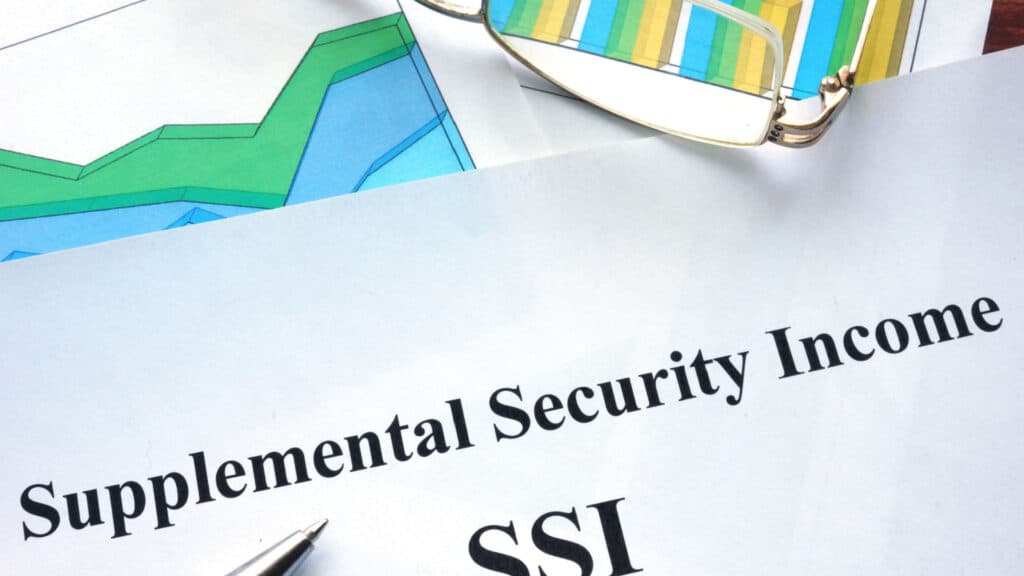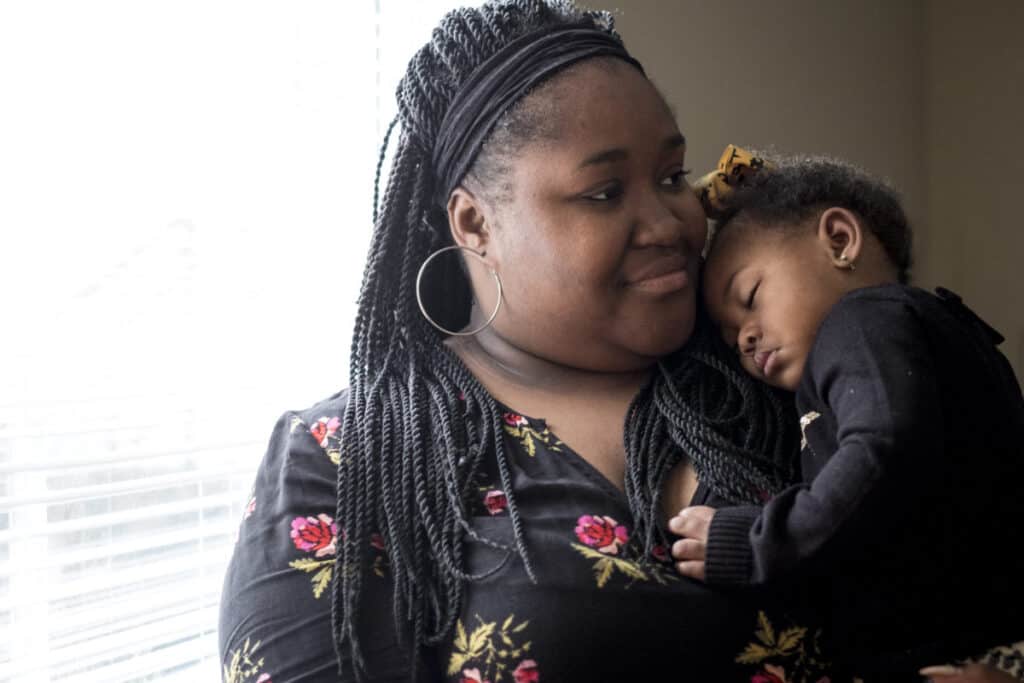Public benefits are government-run programs that can help you pay for things you need. These programs can make a big difference in your family’s life with health insurance, extra food, help paying for utilities, or cash. If you are a parent of a child with disabilities and you are looking for financial help, this is a great place to start.
Most of these programs are not specifically for people with disabilities. In most cases, you need to be a US citizen or lawful permanent resident (have a green card) to qualify. But even if you are undocumented (don’t have papers) you may still qualify for some programs, so check the requirements for each one.
Benefits that can provide financial help for parents of a child with disabilities include:
- SSI: Supplemental Security Income: a cash benefits program for people who are disabled, blind, or over 65
- Medicaid: provides health insurance coverage to low-income people and some people with disabilities
- SNAP: Supplemental Nutrition Assistance Program (used to be called Food Stamps)
- WIC: Women, Infants, and Children: helps pregnant and nursing parents and young children get healthy food
- TANF: Temporary Assistance for Needy Families (used to be called Welfare)
- LIHEAP: Low Income Home Energy Assistance Program: helps with winter heating costs)
- ACP: Affordable Connectivity Program: provides discounted internet access and devices for low-income families
The easiest place to start is to call 1-844-USA-GOV1 (1-844-872-4681) or go to https://www.benefits.gov/
It’s important to know that sometimes if you get a new kind of benefit, you have to give up one you have. For example, Medicaid benefits may be similar to state disability flexible funding benefits, so the state may decide you are only eligible for one or the other but not both. Check with a support program to find out how a new benefit will affect your family’s other benefits. Or call 1-844-USA-GOV1.
Medicaid can provide health insurance
A lot of people think of Medicaid as a health insurance program for people with low income. But it can also be a great health insurance option for people with disabilities, even if your family’s income is too high for the whole family to qualify.
In the last few years, many states have expanded their eligibility guidelines, especially for children, so even if you did not qualify in the past it is worth looking again to see if you qualify now. In most states you need to be a US citizen or legal permanent resident to qualify for Medicaid.
Here’s what you need to know about Medicaid:
- It pays for most health care, including hospital stays, doctor visits, and prescription drugs
- If you qualify for SSI, in most states you automatically qualify for Medicaid too. You may also qualify for Medicaid even if you didn’t qualify for SSI
- Each state has its own guidelines and rules around Medicaid. Sometimes states have their own name for Medicaid, like MassHealth (Massachusetts) or Healthy Louisiana. Find the guidelines for your state’s program
- Even if you have private health insurance, you can get Medicaid as a supplementary (second) insurance for a family member who qualifies because of a disability. This means Medicaid pays for most of the expenses (like co-pays and deductibles) that your private insurance does not cover
- Apply for Medicaid in any state
SNAP: the Supplemental Nutrition Assistance Program can help get healthy food on your table
SNAP, which used to be called Food Stamps, is a program meant to help low-income families pay for healthy food. To qualify, you or your family need to fall below certain income guidelines.
If you qualify for SNAP, you will get an EBT card (like a debit card) to buy certain kinds of healthy foods in stores. Every month, the program will load more funds onto your card for this purpose. Find stores near you that accept SNAP. You can also now use SNAP at some on-line stores.
A number of states now offer programs that provide extra money to SNAP recipients to buy fresh produce from farmer’s markets. These programs go by different names, like Market Match in Louisiana and the Healthy Incentive Program in Massachusetts. Find a farmer’s market near home that accepts SNAP.
You do need to be a US citizen or green card holder to get SNAP. However, if some members of your family are citizens or green card holders, they may be able to get SNAP, which can still help your family get what you need.
Find your state’s guidelines, application, and nearest SNAP office location. Or you can pick up an application at your local Social Security office.
WIC: Women, Infants, and Children nutrition program can help buy food for pregnant and nursing people, babies, and toddlers
WIC is a nutrition program meant for parents with low income and young children. Many people get both SNAP and WIC.
You may qualify for WIC if you are:
- Pregnant (through pregnancy and up to 6 weeks after birth or after pregnancy ends)
- Breastfeeding (up to your baby’s 1st birthday)
- Postpartum (you gave birth or had a pregnancy end less than 6 months ago)
- Babies and children up to their 5th birthday
If you qualify for WIC, you will get an EBT card (like a debit card) that you can use to buy certain kinds of healthy foods at stores. You will also get nutrition and counseling education, screening, and referrals to other health and social services. WIC also has a Farmer’s Market Nutrition Program, which gives you extra funds to use at farmer’s markets or roadside stands to buy fruits and vegetables.
Find out if you may qualify for WIC. Even if you are not a US citizen or green card holder, you may qualify.
To apply, you will need to make an appointment at a WIC office near home or call your state’s WIC program. When you make an appointment, they will tell you what you need to bring. You will need to bring your child or children to your appointment.
TANF: Temporary Assistance for Needy Families (TANF) can give you cash benefits
TANF (which used to be called welfare) is a program that sends cash benefits to qualifying families with children. Some states have work requirements for people who get TANF. This could mean you need to participate in a “work activity,” like having a job, doing job training, or working towards a high school diploma or GED.
You should qualify for TANF if you:
- Are unemployed or underemployed (you can’t work enough to support your family), and have very low income
- Are a US citizen, have a green card, or have one of these exceptions
- Are pregnant, have a child 18 or younger, or are 18 or younger and are the head of your household
If you qualify for TANF, you probably also qualify for SNAP and WIC.
To apply, you will need to go to an office of your state or tribal TANF program.
LIHEAP: Low Income Home Energy Assistance Program can keep the house warm (or cool)
LIHEAP is a program that helps pay for home heating oil and other energy bills.
Depending on where you live, LIHEAP can help pay for:
- Your heating or cooling bills
- Emergency services like utility shut-offs
- Weather-proofing to make your home more energy efficient and lower your utility bills. This means things like adding insulation or fixing leaky windows. If you rent your home, you can still do this if you have your landlord’s permission
To find out if you qualify for LIHEAP, call your state’s LIHEAP program or the National Energy Assistance Referral (NEAR) hotline at 1-866-674-6327.
In some states, you qualify automatically for LIHEAP if you get TANF, SNAP, SSI, or veterans benefits. Ask your local LIHEAP program about this.
A lot of people who qualify for LIHEAP don’t get it because LIHEAP often runs out of money, so if you are struggling to pay your energy bills, it is best to apply before you get too far behind. If LIHEAP has run out of money or you get LIHEAP but you are still struggling, you can call 211 or go to the national 211 website to find other resources that can help you.
ACP: The Affordable Connectivity Program can make internet service affordable
The ACP helps low-income households get discounts on broadband internet service and devices. If your family qualifies for other benefits like SNAP, Medicaid, SSI, WIC, Pell Grant, or Free and Reduced-Price school meals, you may qualify for for the ACP. (Check out eligibility requirements)
Benefits may include:
- Discounts of up to $30/month in internet service, or $75 for households on Tribal lands
- Discounts of up to $100 for a laptop, tablet, or desktop computer
- A low-cost service plan fully covered by the ACP
In May 2022, President Biden announced that 20 internet providers have agreed to offer high-speed internet service to eligible households for $30/month or less. This means that many families will be able to get the full cost of their service covered through the ACP.
You can apply online, by mail, or by contacting your current internet company.
If you are looking for financial help as a parent of a child with disabilities, don’t wait! Support is out there, and you don’t know what you qualify for until you apply.



